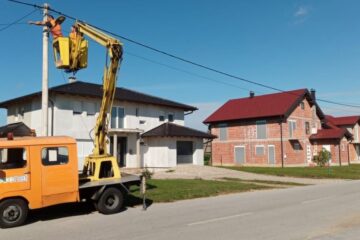
Virtualization is a consequence of the digitalization of society, that is growing in all sectors. In the telecom industry, the benefits of network virtualization can’t be denied, and we will explore them in this article.
What is network virtualization?
According to vmware, network virtualization can be defined as abstract network resources that traditionally were delivered from hardware to software.
To be more specific, in network virtualization, network functions, hardware resources and software resources are allowed to be delivered as independent of hardware and can be used for example, to connect virtual machines.
This type of network optimizes all the process and developments of managing their server resources, without expensive hardware.
Difference between network virtualization and internal network virtualization
There are 2 types of virtualized netwoks: the external and internal virtualization.
External Virtualization
This type of network virtualization combines systems physically attached to the same LAN into separate VLANs or can divide separate LANS into same LAN, allowing service providers to improve networks efficiency.
Internal Virtualization
In the opposite side, is the internal virtualization that works within one server outside of a single server to simulate a physical network, improving server efficiency.
Benefits of network virtualization
As said before, there are several benefits of network virtualization besides the efficiency. Here are the key benefits of network virtualization:
Reduces the number of physical devices needed and consequently, the hardware cost
With network virtualization, several physical servers are replaced by one single host server, saving lots of money in equipment and in maintenance in different servers instead of just one.
Reduces other costs, such as energy
One of the benefits of network virtualization is the reduced use of computer hardware. By reducing substantially the use of computers, the overall electricity consumption reduces and consequently its costs reduce too.
Recover from hardware failures or disasters
Although lots of people thinking that the biggest benefit of network virtualization being costs reduction, the recoverability of failures or disasters is a way more valuable benefit. In traditional networks if one of the several servers as for example, a hardware problem, that server will be down until the problem is fixed, which can take lots of hours to be solved.
But if you have the same problem in a virtual network with two different hosts, if one of the hosts fail, automatically the host with problems will be transferred to the working host.
Network virtualization is changing how telcos work and the way services are delivered, for the better. Networks become more dynamic, optimized and prepared for problems that may occur.
Modern networks must be prepared for the need of a more digitalized society and with the benefits of network virtualization, delivering more speed and agility without spending too much time with developments and maintenance is now possible, since virtual networks can be deployed or updated in minutes.
Related articles: Industry 4.0: How IoT can help on its advancements









